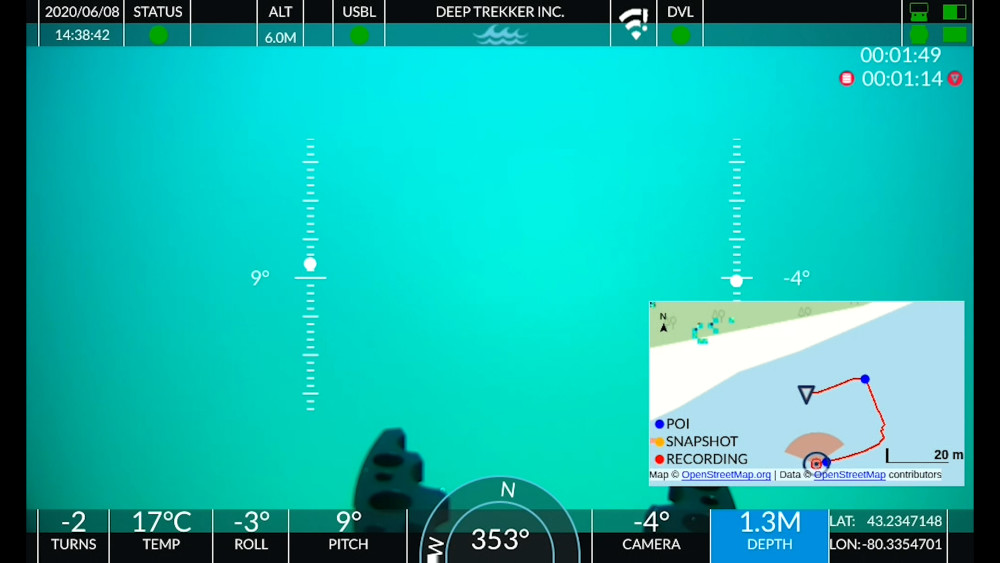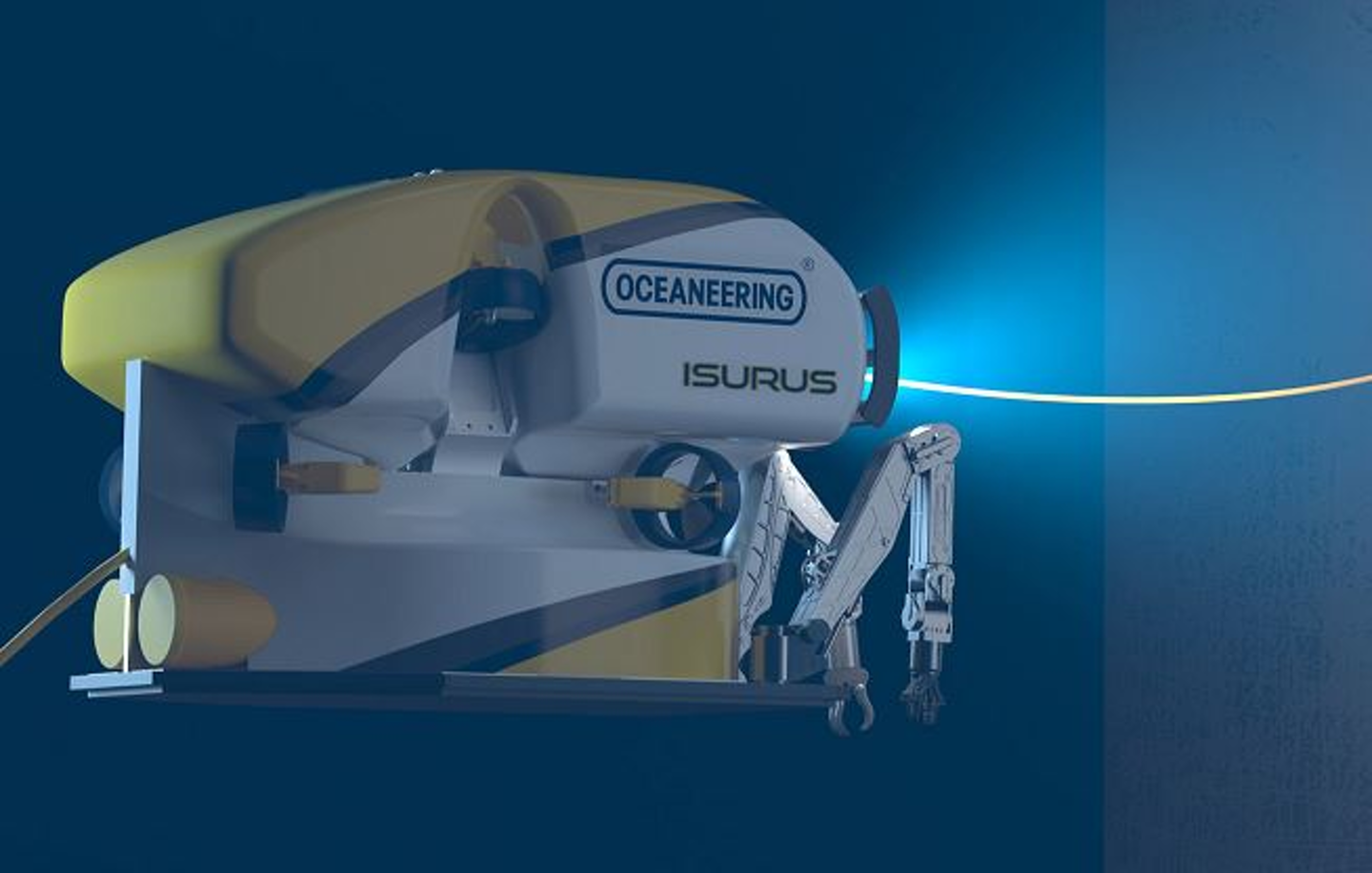Home › Forums › ROV › ROV Rookie Corner › RAF to ROV
- This topic has 11 replies, 10 voices, and was last updated 16 years, 3 months ago by
Savvi.
-
AuthorPosts
-
October 3, 2008 at 8:06 am #1839
Nic41
ParticipantAdvice please guys.
Got 23 years avionics/electrical military experience. would like to transfer it to rov’s but need an honest assessment of the industry…ie…work, pay, training etc etc……been promised the earth by training schools but very sceptical about their intensions and my money!!!! DONT WANT TO BE TAKEN FOR A MUG………….would like to work from home and just go where needed (used to that sort of thing!)
any advice would be greatly appreciated. thanksOctober 3, 2008 at 2:13 pm #19548xxx
ParticipantNic41
ROV game needs good technical personnel. As Ex RAF avionics your quals and experience are more than good enough to get a job. Do NOT!! waste your money on an ROV course. Use resettlement to get Medical and OLF survival. Then read FAQ’s on here and get your CV set up to reflect what is required. Some of the current newbies are awful. Thank fully there are a few good ones. Technical back ground and a good attitude are what is required.
Send out your CV’s and hope you hit the right place at the right time. Some of it is just luck.
Be lucky.
October 3, 2008 at 5:16 pm #19549HelpMaBoab
ParticipantAlso you you forgot sea sickness, We had to send an ex RAF gadgie home from Egypt ‘cos he kept chucking up leaving port sea state milk bottle.
 October 4, 2008 at 6:45 am #19550
October 4, 2008 at 6:45 am #19550dandydon
Participant………….would like to work from home and just go where needed (used to that sort of thing!)
any advice would be greatly appreciated. thanksYou will be primarily working from a vessel/ship or semi-submersible and not home..
October 5, 2008 at 6:15 pm #19551Steve
ParticipantAlso you you forgot sea sickness, We had to send an ex RAF gadgie home from Egypt ‘cos he kept chucking up leaving port sea state milk bottle.

Yup, get that "RAF" attitude staraight out your head
Good luck though….
October 6, 2008 at 6:10 am #19552BennyG
ParticipantWell, what a lot of information I have found on ROVworld. How much I am going to take as gospel is absolutely zero. HOWEVER as a fellow newbie looking to make a break as an ROV tech pilot who has sifted through the vast majority of this site, especially newbies corner, I have made the following observations:
1 – It is damn tough to catch a break in this industry.
2 – No it isnt absolutely nessesary to do an ROV pilot tech course.
3 – Anything you can do to ‘stand out from the crowd’ could make all the difference.
With a strong avionics background here is my plan of action for entry into ROV operation, and I welcome constructive feedback, to any adjustments I need to make.
1 – I know sod all about hydraulics, so read up to form a basic knowledge base, then find a course to practically reinforce what I have read.
2 – Talk to experienced guys (I dont actually know anyone offshore, so as difficult as it may be, need to rely on forums) and find out if I need to sort my knowledge/skills base in other areas ie welding?
3 – Go on Boseit course (May as well do the euro bit to allow me to work in Norwegian waters for the sake of an extra 300 quid).
4 – (AND I KNOW SOME OF YOU WILL CRY NO HERE) Go on a pilot course, the reason being it shows willing, got my eye on Portland, seems to have less negative comments than most, they appear to assess your CV to see if it is worth you going on the course and doesnt seem as costly as some.
5 – Pound the streets as they say to get my CV seen, and maybe even face and name known.
6 – More reading, investigate any company I am lucky enough to get an interview with and know them inside out, as well as knowing my stuff inside out.
So there you have it, the thoughts, of a 28 year old tech looking to side step into this inustry. Your comments are most welcome, and as I am aware first impressions count, and I am bound to bump into some of you (it’s a small world) hope I didn’t do too bad.
October 6, 2008 at 6:59 am #19553Savvi
ParticipantSounds good m8 . Just be patient it will come sooner or later. Good luck with finding a job.
There is just one little thing I cant seem to figure out in your posts you say you have (23 years avionics/electrical military experience) but you say (the thoughts, of a 28 year old tech looking to side step into this industry) did you start working at 5 yearsold. Or did I miss something (Sorry if I did)
Well anyhow good luck with the job hunting. 😕October 6, 2008 at 7:34 am #19554Nic41
Participantthanks all… keep it coming.
Savvi…think you got me and BennyG merged into one, thanks for your encouragement tho.You will be primarily working from a vessel/ship or semi-submersible and not home..
thanks dandydon….think i’ve already worked that one out!
xxx and BennyG…thanks for the decent info, greatly appreciated.
October 6, 2008 at 7:42 am #19555luckyjim37
ParticipantThere are a lot of trainees at the moment in jobs who cannot get offshore so be prepared to be frustrated in the first year.
Good luck to anyone starting in the industry it is very busy at the moment and appears to be staying the same into next year but over the past 12-18 months every company has been recruiting heavily and will probably continue to do so.
The problem for the newbies is when they get a job with a company the companies are finding it hard to get them offshore as there are only so many slots you can put someone with zero experience into.
I know this sounds a little negative but it is a reality. Once you have had a couple of trips it is easier to find you a slot as you then have an idea of what is going on.
Also from my experience the ex-RAF guys do very well. They are certainly better trained in using tools and technically than the ex OM’s from the RN. It sticks in my throat to say that being and ex-OM myself.
If you can get into a company without a training course then you are on a winner as you save a lot of money. The best thing you can do is ensure that any qualifications are civillian recognized HNC, NVQ, etc and as was pointed out if you are purley electronic based get a basic hydraulic qualification under your belt as this is on a day to day basis the dominant thing you end up working on with work class ROV’s.
Mostly you end up topping up compensators, filling the system, checking leaks and the like. Also if you are electronic based look at learining a bit about heavier electrics as the newer systems are now running at 3000vac which is significantly more than you find on an aeroplane computer I guess.
Happy hunting.
October 6, 2008 at 8:35 am #19556Ray Shields
Participant1 – I know sod all about hydraulics, so read up to form a basic knowledge base, then find a course to practically reinforce what I have read.
2 – Talk to experienced guys (I dont actually know anyone offshore, so as difficult as it may be, need to rely on forums) and find out if I need to sort my knowledge/skills base in other areas ie welding?
3 – Go on Boseit course (May as well do the euro bit to allow me to work in Norwegian waters for the sake of an extra 300 quid).
4 – (AND I KNOW SOME OF YOU WILL CRY NO HERE) Go on a pilot course, the reason being it shows willing, got my eye on Portland, seems to have less negative comments than most, they appear to assess your CV to see if it is worth you going on the course and doesnt seem as costly as some.
5 – Pound the streets as they say to get my CV seen, and maybe even face and name known.
6 – More reading, investigate any company I am lucky enough to get an interview with and know them inside out, as well as knowing my stuff inside out.
There is a SVQ/NVQ in Hydraulics that can be done through distance learning and assessed through your local college which is quite useful. Allows studies to continue even if not at home.
If you do feel the need to do your survival and medicals then most definately ensure you do the ones that will cover you for full Pan European which includes Norway otherwise you will only have to redo them all again once employed hence you would have wasted you own
money.No, you do not need welding, all companies will only use coded welders for any work and besides you really need to stick to one main discipline to get started and in your case this will be electrical/electronic.
As Jim mentioned, "heavy" electrics is also very common now with all work classes, so I would suggest looking at any High Voltage courses, or courses that cover contactors, thermal overloads, transformers, working up to 3-5kV as this will also count well towards workclass ROVs.
Training school – you’ve read the pro’s and cons, up to you whether you wish to do it, only adivce I would add is that I would prioritise if you only have so much money to spend, personally I would say getting hydraulic qualification, electrical plant/high voltage stuff and even survival/medical should go ahead of a training school.
THere is a lot of useful information on here for newbies, but sometimes it gets drowned out in a sea of noise. You just need a good filter 😀
October 6, 2008 at 1:52 pm #19557Scott Beveridge
Participant………….would like to work from home and just go where needed (used to that sort of thing!)
any advice would be greatly appreciated. thanksYou will be primarily working from a vessel/ship or semi-submersible and not home..
Dandydon,
Ye fergot tae mention that we cannae wirk firm home cuz the tethers ainnae long enuff…
October 7, 2008 at 4:43 pm #19558Savvi
ParticipantOops Sorry Nic41
-
AuthorPosts
- You must be logged in to reply to this topic.



